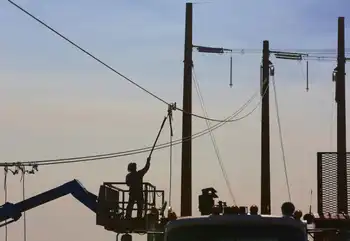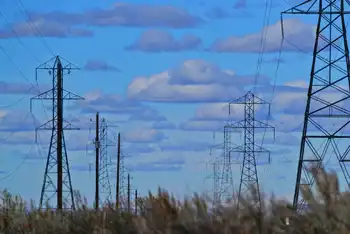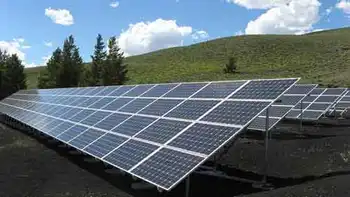Sunflower coal plant permit anticipated
Sunflower Electric Power Corp. had worried it might not get its permit until next year. Federal rules taking effect Jan. 2 require new power plants to use the best available technology for controlling greenhouse gas emissions blamed for global warming.
A legislative supporter of the project acknowledged "some angst" over the permitting process at the Kansas Department of Health and Environment. The department already has taken public comments about the plan for a plant outside Holcomb, in Finney County. However, it plans a second comment period because of problems with environmental modeling software used by the utility.
A key issue for Sunflower and environmentalists has been whether the new public comment period would last 30 days, the minimum required, or 45 days. Spokeswoman Kristi Pankratz told The Associated Press the department decided on the shorter period and plans to announce it by the end of this month.
As for the permitting decision, Pankratz said, "We're hoping to have that by the end of the year."
State Sen. Janis Lee, a Kensington Democrat who strongly supports Sunflower's plans, also said a decision should be reached by the end of the year in a normal permitting process.
"I believe that there was communication between the governor's office and the secretary, and the decision was made on 30 days" for the comment period, Lee told the AP. Lee said the decision was made just recently.
Before the decision, Lee said, "There was some angst."
Environmentalists see the shorter comment period as a sign the department is rushing a decision on whether Sunflower gets the air-quality permit it needs to build its plant.
In an e-mail obtained by the AP, Sunflower's vice president of member service and external affairs, Clare Gustin, had accused department Secretary Rod Bremby of "gaming the process" to delay a permit. Cindy Hertel, a spokeswoman for the Hays-based utility, said the e-mail was an attempt to keep supporters of the project updated.
"My thought is to have multiple contacts with both the Governor and Bremby, hoping that someone can positively change this situation," Gustin wrote.
Bremby rejected an earlier plan by Sunflower to build two coal-fired plants, deciding in October 2007, more than a year after his staff drafted a proposed air-quality permit. The proposed permit for the latest project was finished June 30.
The e-mail said Democratic Gov. Mark Parkinson, who supports the project, was meeting with key supporters of the utility's plans. AP confirmed meetings involving those mentioned in the e-mail, though Parkinson spokeswoman Amy Jordan Wooden said the governor isn't involved in the permitting process.
Lee confirmed she had a meeting with Parkinson. An aide to State Treasurer Dennis McKinney, another Democrat who supports the Sunflower project, confirmed that he also was to meet with the governor, though she didn't know the topic.
Jordan Wooden declined to discuss Parkinson's non-public schedule. But she also said she's not aware of any conversations between Parkinson and Bremby about the permitting process.
"This is a KDHE process," she said. "We are not doing anything to slow down this process. We are not doing anything to accelerate this process."
Related News

Cost, safety drive line-burying decisions at Tucson Electric Power
TUCSON - Though wildfires in California caused by power lines have prompted calls for more underground lines, Tucson Electric Power Co. plans to keep to its policy of burying lines selectively for safety.
Like many other utilities, TEP typically doesn’t install its long-range, high-voltage transmission lines and distribution equipment underground because of higher costs that would be passed on to ratepayers, TEP spokesman Joe Barrios said.
But the company will sometimes bury lower-voltage lines and equipment where it is cost-effective or needed for safety, or if customers or developers are willing to pay the higher installation costs
Underground installations generally include additional engineering…





